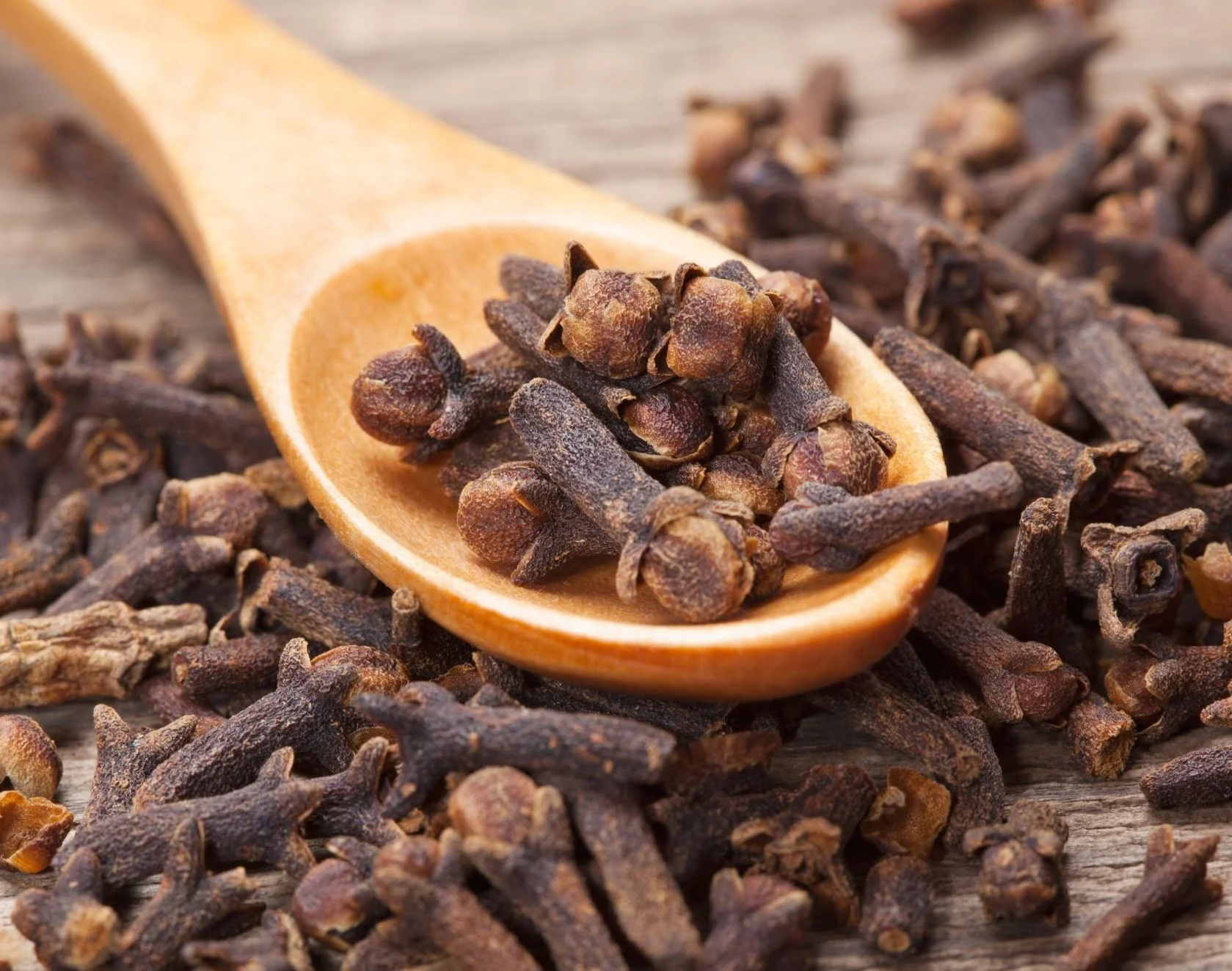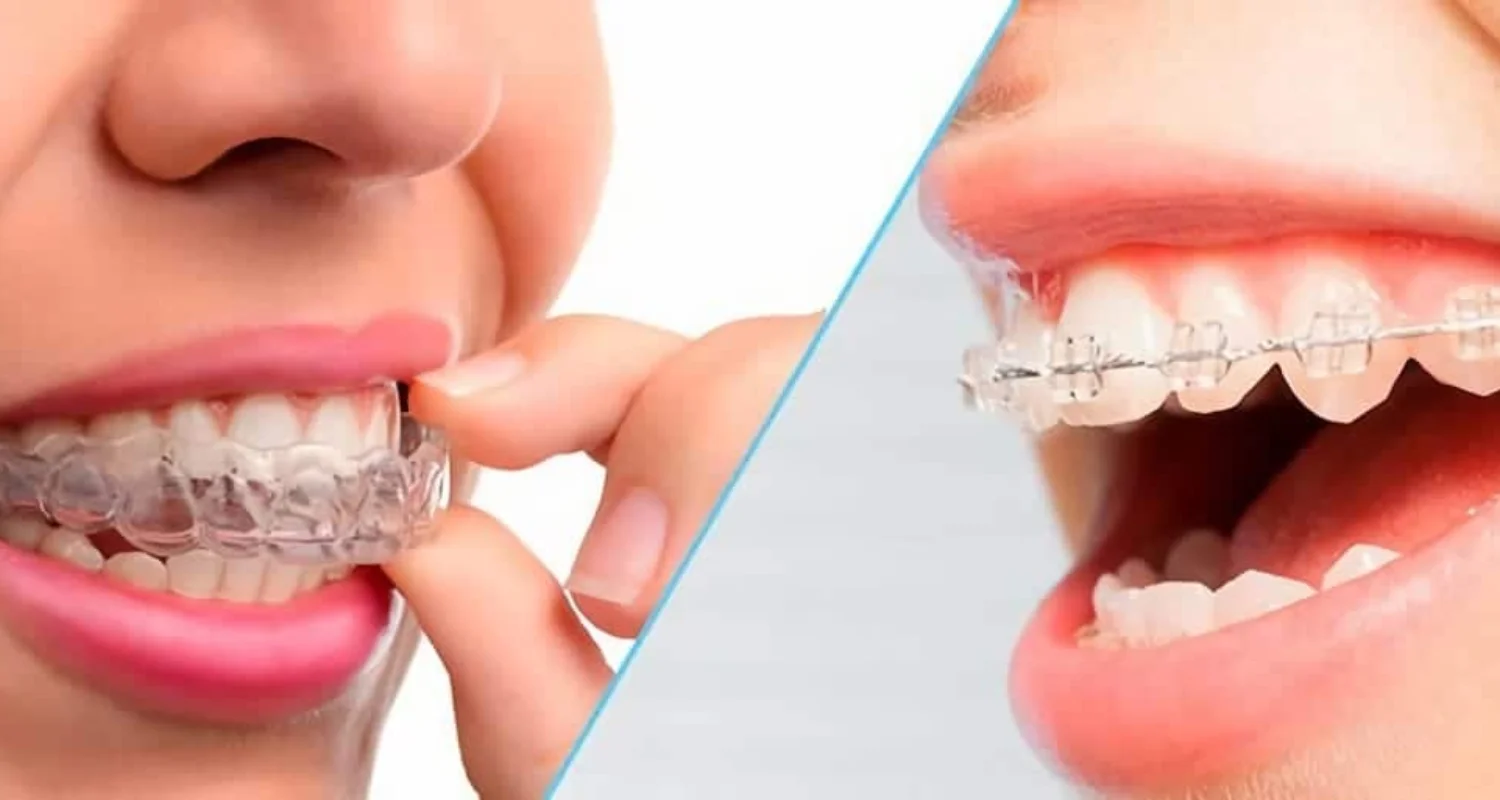Last Updated on: 1st July 2024, 12:18 pm
✓ Fact Checked 🕓
❙ Our team of writers, editors, and medical experts rigorously evaluates each article to ensure the information is accurate and exclusively cites reputable sources.
❙ We regularly assess how the content in this article aligns with current scientific literature and expert recommendations in order to provide the most up-to-date research.
Cloves Dental Benefits: Complete Guide
Did you know that the tiny spice often tucked away in your kitchen cabinet, cloves, holds a surprising secret? Beyond its aromatic charm used in cooking, cloves have been quietly revolutionizing dental health for centuries, because of their ability to fight harmful bacteria in the mouth. From historical anecdotes to cutting-edge discoveries, cloves continue to astonish us with their multifaceted role in dentistry, offering numerous dental benefits.
Cloves, a spice revered for its rich aroma and flavor, hold a treasure trove of health benefits, particularly in dental care. Beyond their culinary appeal, it has been a cornerstone in traditional medicine, relieving various ailments, including dental issues. This article explores the historical significance and modern applications of cloves in dental health, backed by scientific evidence, to unveil how this humble spice can revolutionize dental care and pain management.
A Journey Through History

Cloves have been used for centuries in traditional dentistry practices across various cultures. These small, aromatic flower buds from the clove tree (Syzygium aromaticum) have been prized for bringing natural toothache relief and promoting oral health.
The journey of cloves from a kitchen staple to a medicinal marvel is steeped in history. Ancient uses trace back to Chinese and Ayurvedic medicine, where they were prized for their antibacterial and analgesic properties. The spice’s journey through the Renaissance rediscovery period highlights its role in combating dental issues and its Modern relevance, underscoring a resurgence in natural remedies. It leads the charge in alternative dental care solutions. Let’s take a journey through history:
Ancient China and India
They used clove oil in toothpaste and mouthwash for its antibacterial effect.
Ancient Egyptians
They used cloves for their analgesic and antimicrobial benefits; surprisingly they also used it in the mummification process to preserve the teeth of the deceased.
Middle Ages
Cloves gained popularity in Europe and the oil was also used as an antiseptic and to freshen breath.
Composition and Dental Properties
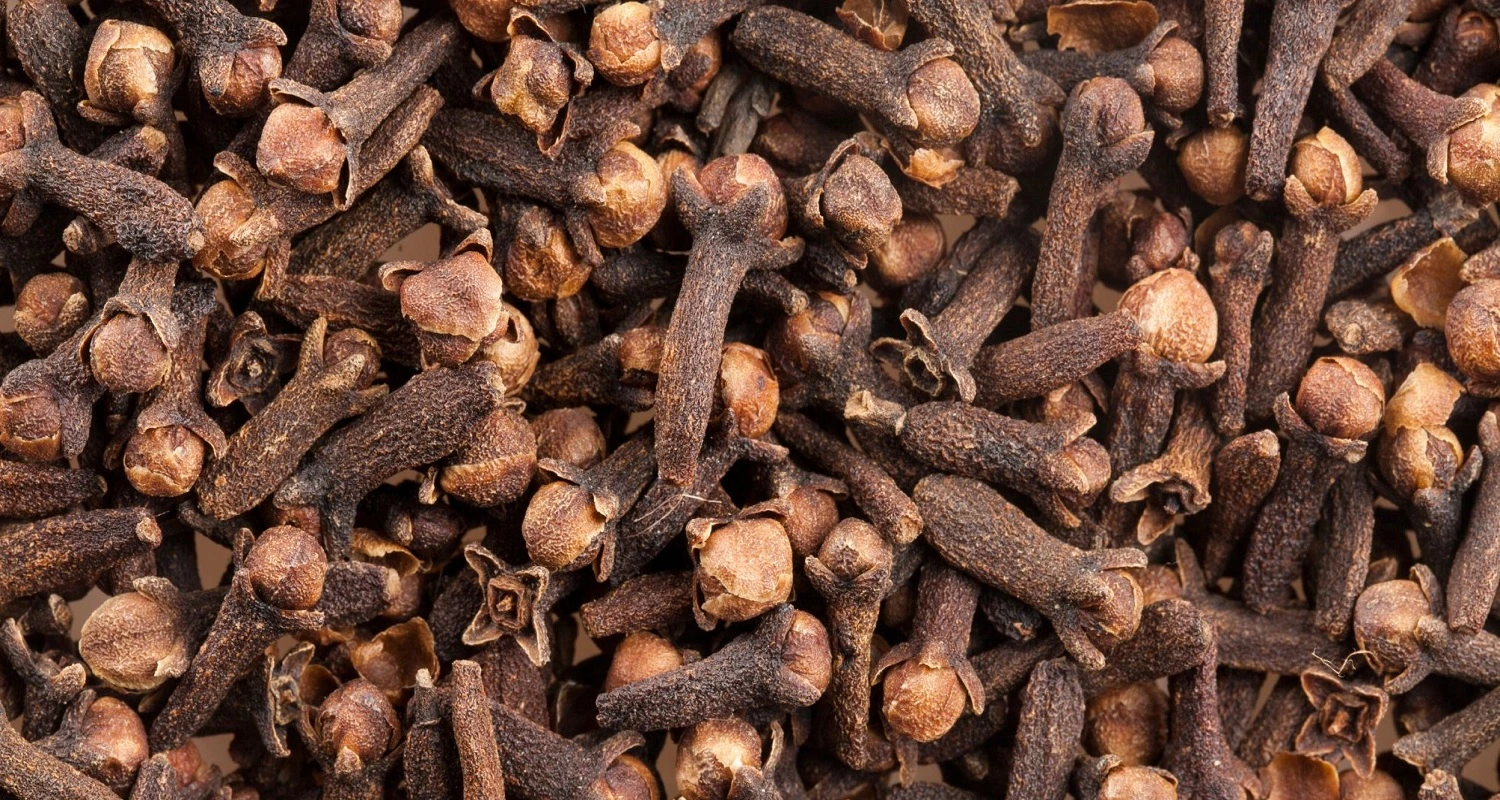
Let’s have a look at the composition of it and discover why they have dental benefits.
● Eugenol: It is the dominant player, contributing to their characteristic scent. Eugenol is known for its antibacterial, anti-inflammatory, and analgesic properties.
● Caryophyllene: Another major component that possesses anti-inflammatory and antioxidant characteristics.
● Cloves: Contain vitamins and minerals.
Their dental properties make them a noteworthy component of oral health:
● Analgesic and anti-inflammatory properties: They have analgesic and anti-inflammatory effects, primarily attributed to eugenol.
● Antibacterial properties: Eugenol has powerful antimicrobial properties, making it effective in fighting bacteria.
● Promotes oral health: The antioxidants and the other compounds found in cloves have been linked to promoting overall oral health.
● Soothes sore gums: Cloves have a numbing effect that can help soothe sore gums and alleviate discomfort.
At the heart of cloves’ efficacy in dental care are its antibacterial properties, which fight oral pathogens, and its anti-inflammatory effects, reducing gum swelling and irritation. Moreover, the analgesic benefits of eugenol, a compound in cloves, offer natural pain relief, rivaling over-the-counter options without the side effects.
Cloves in Modern Practices
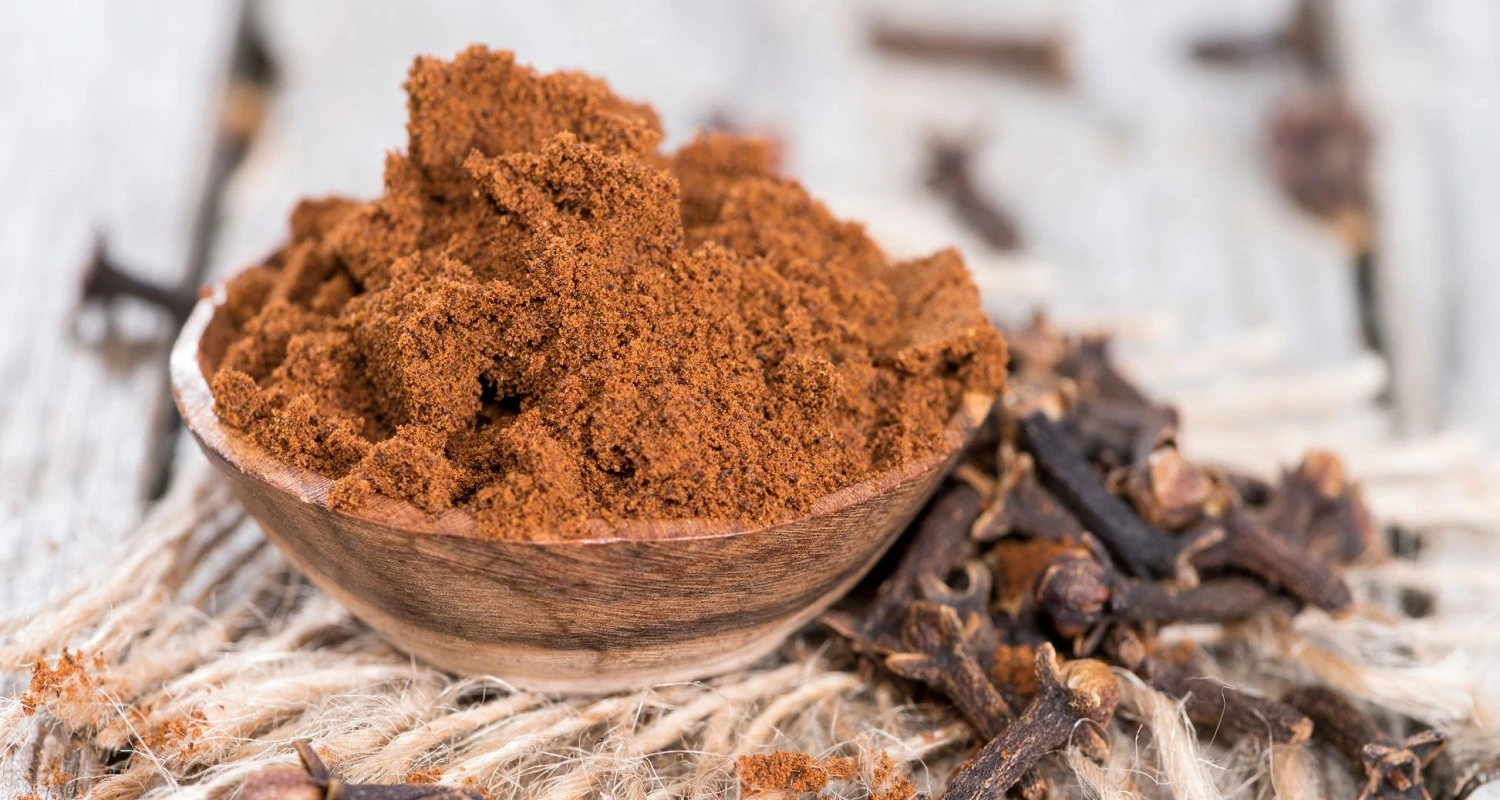
In contemporary times, cloves continue to find a place in modern practices. Here are some ways in which cloves are used in modern dental treatments:
Dental products:
● Toothpaste
● Mouthwash
● Clove-based gels
Clove oil is the common ingredient in these products. It enhances their ability to fight bacteria, reduces inflammation, alleviates pain, and contributes to overall oral health.
Canker sore treatment:
They are small painful ulcers that develop inside the mouth. Clove oil can be used to reduce the pain and inflammation associated with them.
Aromatherapy:
The aromatic nature of cloves makes them suitable for reducing dental anxiety in clinical settings.
Five Incredible Cloves Dental Benefits
1. Natural pain relief: A godsend for anyone suffering from toothaches. Their natural analgesic properties provide quick relief.
2. Prevention of oral diseases: The antibacterial qualities can help prevent cavities, gingivitis, and other oral infections.
3. Supporting gum health: The anti-inflammatory nature aids in reducing gum swelling and bleeding.
4. Enhancing oral hygiene: Regular use of clove-based products can freshen breath and reduce plaque buildup.
5. Promoting healing after dental procedures: Accelerate healing and reduce discomfort following dental surgeries.
Practical applications in dental care
Incorporating cloves into dental care is straightforward. Using clove oil for toothaches, opting for clove tea as a Mouthwash, or mixing clove powder in a DIY toothpaste are effective methods to harness the benefits of cloves for oral health.
Top 5 DIY Clove Remedies for Oral Health
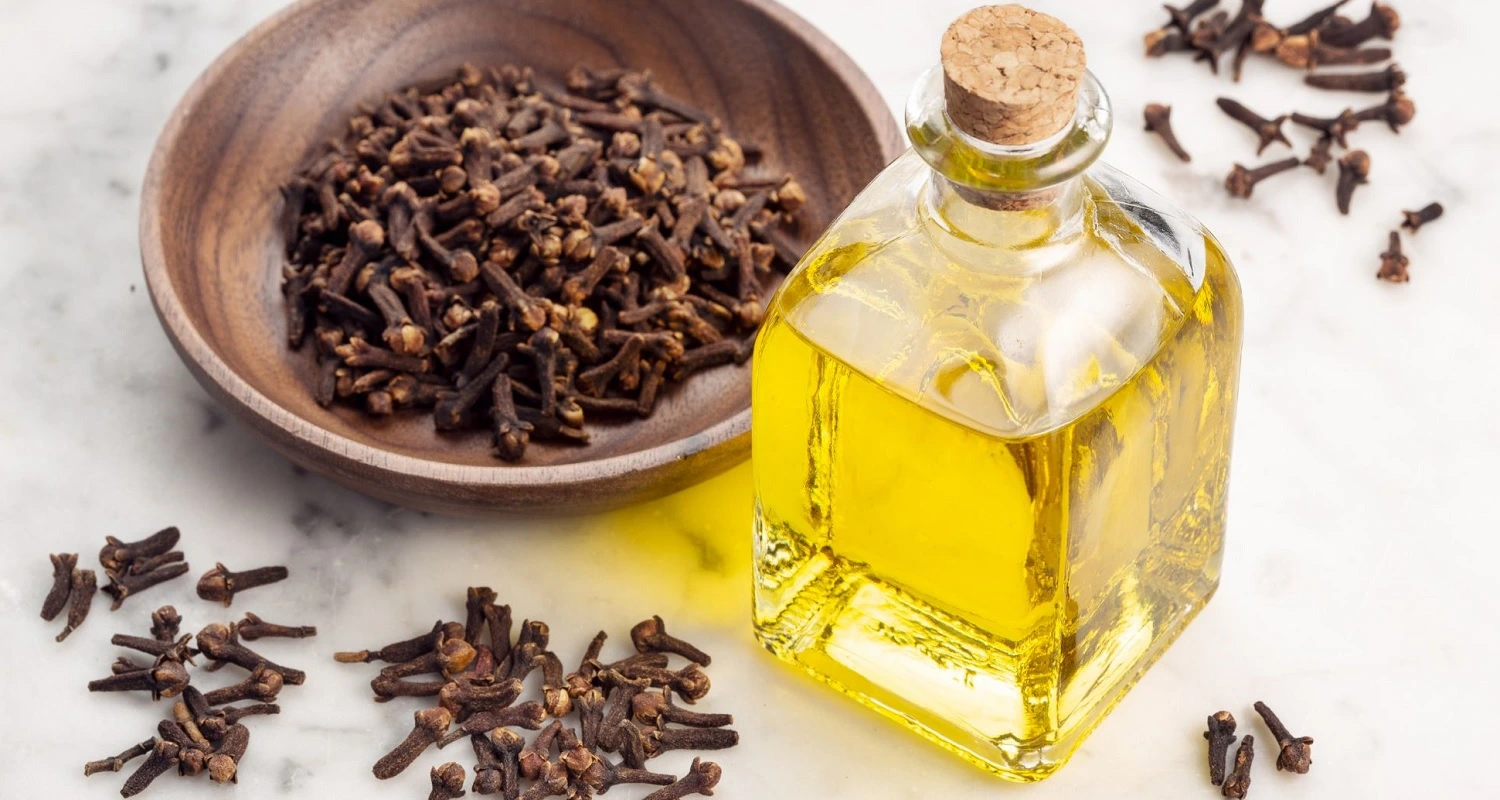
We have seen the significant importance of cloves in relieving toothache and all its other dental benefits. Here are some creative and engaging DIY clove remedies for oral health along with important precautions:
1. Homemade clove mouthwash:
● Ingredients:
◦ 1 cup of distilled water
◦ 1 teaspoon of ground cloves
◦ 1 teaspoon of natural honey
● Instructions:
◦ boil water and add ground cloves
◦ let it steep for 10-15 minutes
◦ strain and cool before using
2. Clove and coconut oil toothpaste:
● Ingredients:
◦ 2 tablespoons of coconut oil
◦ 1 teaspoon of baking soda
◦ 5-10 drops of clove essential oil
● Instructions:
◦ mix all ingredients thoroughly
◦ store in a small jar
◦ use regular toothpaste
3. Clove and tea tree oil toothache relief:
● Ingredients:
◦ 1-2 drops of clove essential oil
◦ 1-2 drops of tea tree essential oil
◦ coconut or olive oil
● Instructions:
◦ mix essential oils with a carrier oil
◦ apply a small amount to the affected area
◦ repeat as needed
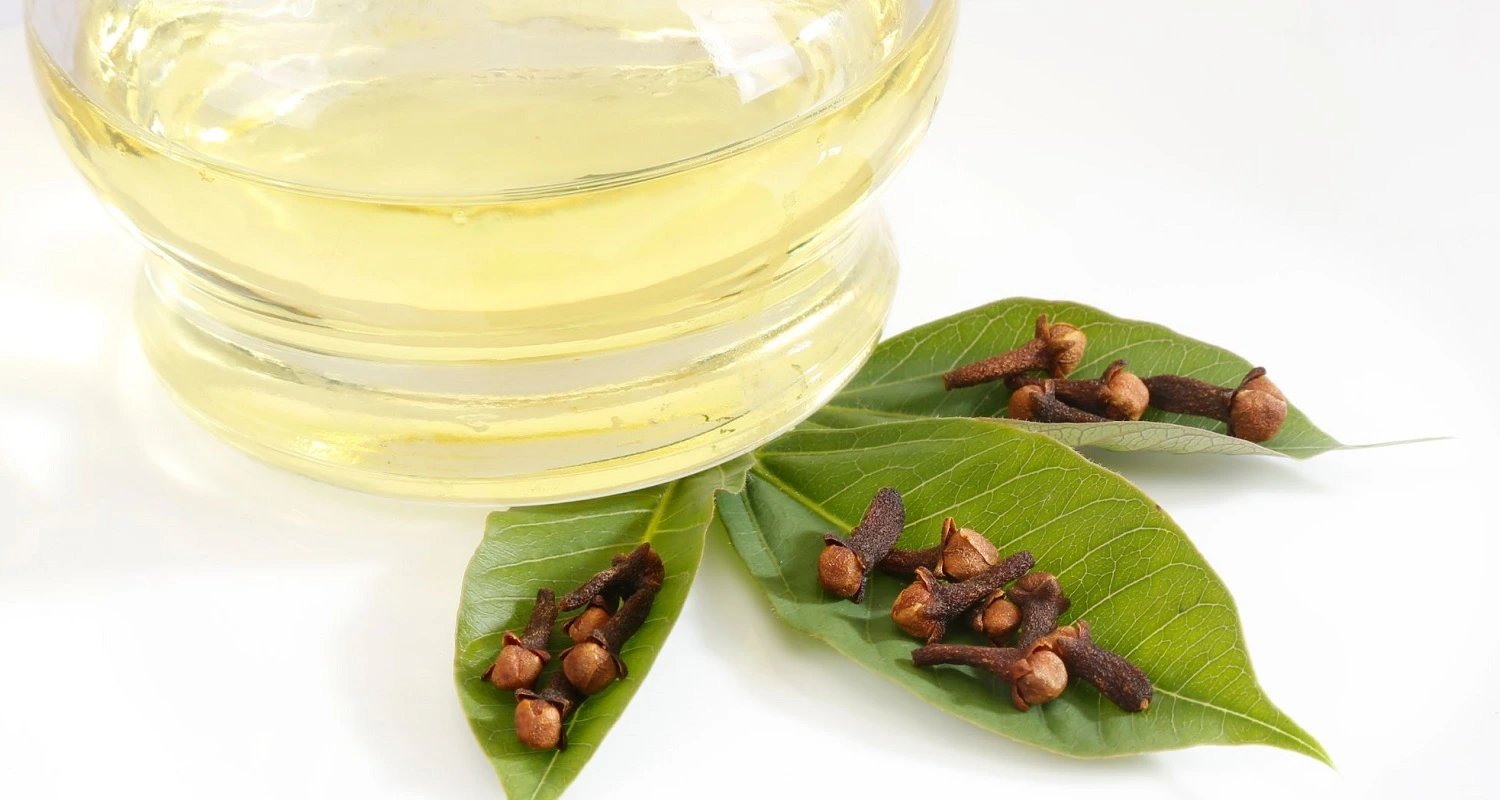
4. Clove-infused gargle for gum health:
● Ingredients:
◦ 1 cup of warm water
◦ 1 teaspoon of crushed cloves
◦ A pinch of sea salt
● Instructions:
◦ steep crushed cloves in warm water
◦ add a pinch of sea salt
◦ gargle with the mixture for 30 seconds
5. Clove and aloe vera mouth gel:
● Ingredients:
◦ 2 tablespoons of aloe vera gel
◦ 3-4 drops of clove essential oil
◦ 1 teaspoon of vegetable glycerin
● Instructions:
◦ mix all ingredients until well combined
◦ store in a sealed container
◦ apply a small amount to the gums as needed
Precautions:
● Use clove remedies in moderation to avoid potential irritation.
● If you have pre-existing dental issues, consult a dentist before trying DIY remedies.
● Perform a patch test to ensure you’re not allergic.
● Avoid swallowing.
Demystifying Cloves in Dental Care: Myths vs. Facts
There are many myths surrounding the use of cloves in dental care that can be misleading. So, we will demystify them and present the facts:
● Myth: It can cure cavities.
○ Fact: Despite their antimicrobial effect, they can’t cure an existing cavity, so visiting a dentist is a must.
● Myth: Safe to use in large quantities.
○ Fact: Generally safe to use in small amounts, consuming large quantities can be harmful.
● Myth: It can whiten teeth.
○ Fact: There is no scientific evidence to support the claim that it can whiten teeth.
Daily Dental Routines: Incorporating Cloves for Optimal Oral Hygiene

Incorporating cloves into your dental routine doesn’t require a complete overhaul. Simple tips, like chewing a clove after meals or adding clove oil to your toothbrush, along with understanding the recommended dosages, can make a significant difference in your oral health.
Maintaining optimal oral hygiene is crucial for overall health, and integrating cloves into your daily dental routine can enhance the benefits:
● Mix a few drops of clove oil with warm water and use it as a mouthwash
● Add a pinch of ground cloves to your toothpaste before brushing.
● Chewing on a clove after meals can stimulate saliva production, which is essential for maintaining a healthy pH balance in the mouth.
On specific occasions or events, it will be beneficial to remind yourself about maintaining herbal dental care using cloves:
● Before and after meals.
● During times of illness.
● Before and after dental procedures.
Conclusion
Incorporating cloves into your oral hygiene routine offers a myriad of dental benefits, encompassing the herb’s antibacterial, pain-relieving, and anti-inflammatory properties. This dental care solution not only promotes oral health but also contributes to a fresher smile. It’s essential to prioritize natural remedies like cloves for a safer and more effective approach to dental care. Remember to consult with your dentist before integrating any new products into your routine to ensure they align with your overall dental health goals.
Frequently Asked Questions
Do Cloves Help with Dental Pain?
Absolutely, clove oil is effective for dental pain because of its pain-relieving properties, providing temporary relief when applied to the painful area. This natural remedy is well-regarded for its ability to mitigate toothache, making it a favored option for those looking for natural pain management solutions.
The efficacy of clove oil comes from eugenol, its main component; it serves as a natural painkiller, delivering a calming effect on both the affected tooth and the surrounding gums. Not only does it help in reducing pain, but it also helps in decreasing inflammation, offering a holistic approach to managing dental discomfort.
Can Cloves Help Rebuild Tooth Enamel?
Studies have shown that clove oil can decrease the rate of tooth decalcification—a process in which calcium is lost, weakening enamel and causing tooth decay. Additionally, research indicates that clove oil might also support the remineralization of teeth.
Can Cloves Strengthen Teeth?
Rich in anti-fungal, anti-bacterial, and antiseptic qualities, cloves are effective in combating tooth decay. Their germicidal properties help alleviate ulcers and sore gums, making them beneficial for individuals with bad breath and cavities.
Can Excessive Clove Use Harm the Teeth?
Applying dried cloves directly in the mouth may lead to sensitivity, irritation, and harm to dental tissues. Ingesting clove oil, particularly in children, can pose serious risks including seizures, liver damage, and a fluid imbalance.
Share:
References
1. Dalirsani, Z., Adelpour, N., & Karimi Afshar, M. (2015). Clove, medicinal plants in dentistry Journal of Dentistry and Oral Hygiene, 7(7), 58-61.
2. Vinothkumar, T. S., Rubin, M. I. P., & Balaji, L. (2016). Clove–A wholesome spice full of medicinal values. International Journal of Pharmaceutical Sciences Review and Research, 38(2), 102–109.
3. Jalila Dakkaki, Samir Ibenmoussa, & M. Sidqui. (2023). Contributions of Medicinal Plants in the Treatment of Oral Diseases. OAlib, 10(07).
4. Helmy, H., Hamid Sadik, N. A., Badawy, L., & Sayed, N. H. (2022). Mechanistic insights into the protective role of eugenol against stress-induced reproductive dysfunction in female rat model. Chemico-Biological Interactions, 367, 110181.
5. Toshi, D. N. (2023, August 8). Clove Oil for Toothache: Natural Relief for Dental Pain. Pharm Easy Blog. https://pharmeasy.in/blog/clove-oil-for-toothache-natural-relief-for-dental-pain/


